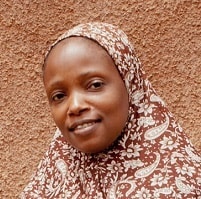By age 27, Hadija had already given birth to four children. Sadly, only two of her children survived. Making things worse, her last pregnancy left Hadija with an obstetric fistula.
Hadija* labored at home for several days with her first child until a midwife was finally called. By the time the midwife arrived, however, it was too late: the baby had died.
When she became pregnant again four years later, Hadija made sure to attend all of her prenatal care appointments. At the end of nine months, she gave birth to a healthy baby at home with the help of a traditional birth attendant. Her third child was also born at home without complications.

Nothing worked, however, and the next day a group of men from the village carried her to the health center in a makeshift stretcher. She labored for another 24 hours at the health center but still her baby had not come. Staff eventually called an ambulance to take her to the nearest hospital, where she received a C-section. Sadly, the baby did not survive.
While recovering at the hospital, Hadija realized she couldn’t control her bladder and was leaking urine. The hospital staff told her there was nothing they could do, but that she might find help in Conakry, the capital city. Two weeks later, the hospital released her and she went home. Hadija’s husband rejected her, and she went to live with relatives.
She lived with fistula for seven months before finding treatment through our partner WAHA at Centre Médico Social Djigui Espoir in 2014. Doctors there were able to perform a successful repair surgery, and Hadija is now dry. She is hopeful about the future.
*Name changed